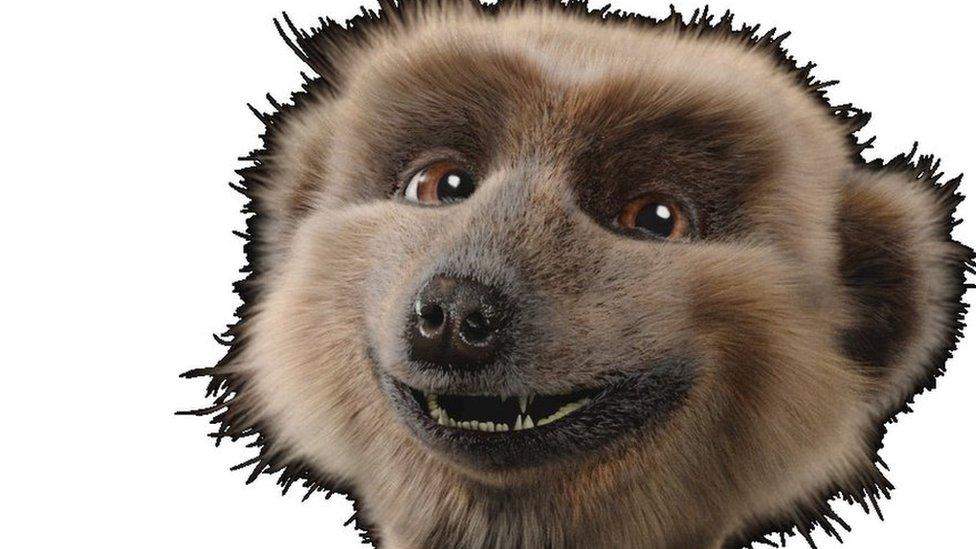Meerkat ads pulled over Ukraine war sensitivities
- Published

The Comparethemarket price comparison site has pulled ads featuring the animated rich Russian meerkat Aleksandr Orlov from news bulletins and content about the Ukraine war.
The firm said it had reviewed its media strategy due to the sensitivities around the Russian invasion.
Orlov, and sidekick Sergei, feature in one of the advertising industry's most recognised campaigns.
The firm stressed in a statement: "The meerkats are fictional characters."
Comparethemarket continued: "They have no association with Russia and the current situation. We are continually reviewing our advertising to ensure we're being sensitive to the current situation."
Orlov does, however, hail from a fictional Russian town and subsequently moved to a London mansion, according to the firm's owner, Peterborough-based financial company BGL.
The meerkat ads have been running since 2009, and have been so successful that Orlov's "simples" catchphrase was added to the Oxford English Dictionary in 2019. The characters have spawned spin-off cuddly toys, sent as promotions to people who used the price comparison site.
Comparethemarket's move underlines how the Ukraine war has put a focus on companies with Russia links, no matter how remote.
There has been a social media campaign for UK supermarkets to show their support by renaming chicken kievs "chicken kyivs", using the preferred Ukrainian spelling of its capital.
And an American restaurant chain, Applebees, apologised and pulled light-hearted ads when they appeared alongside footage of the invasion.
The meerkat campaign was first created by the advertising agency VCCP in London. It was voted the nation's favourite TV advert in 2016, after a Marketing magazine poll.
A memoir for the fictional character Aleksandr Orlov, entitled "A Simples Life" reached Amazon's 100 bestselling books in 2010. With book royalties, the fictional character said he planned to re-marble the meerkat mansion's roof. The character has 55,800 followers on Twitter.
Related topics
- Published28 February 2022
- Published28 February 2022